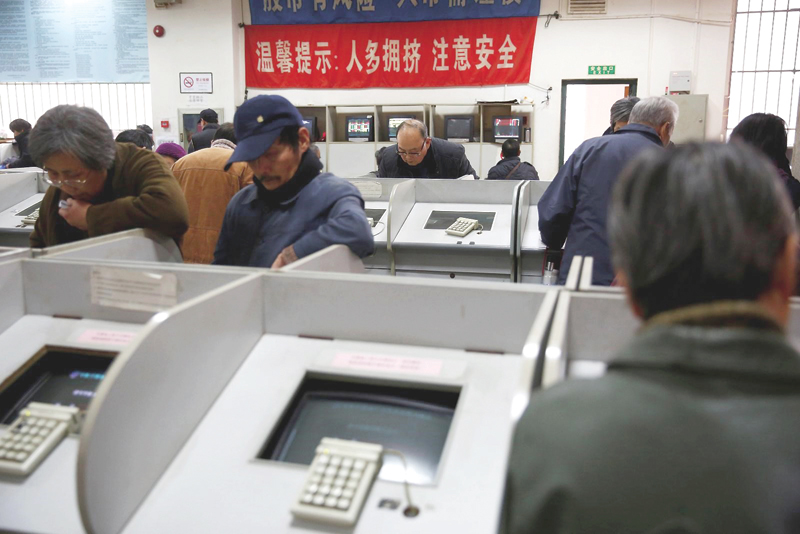

SHANGHAI: Speculators are staging a forceful comeback in China’s stock market, bidding up shares in loss-making companies as regulators ease rules around trading, fundraising and backdoor listings to prop up struggling bourses.
In a bid to stop the kind of market meltdown China saw in 2015-16, authorities are urging funds to invest in cash-strapped companies and encouraging others to do mergers and acquisitions (M&As).
The measures mark a reversal of the more restrictive curbs introduced two to three years ago, which were designed to prevent a repeat of the boom-and-bust cycle that triggered the last major rout.
The relaxations, however, have resulted in an immediate surge in speculative bets on possible acquisition targets and trading in small-cap shares.
For some, the moves simply clear unnecessary regulatory interference that inhibits robust and open capital markets. But for others, the new policies are a dangerous “Faustian Bargain” that delivers short-term stability at the expense of sustainable valuations.
“Currently, all the emergency measures are deals with the devil,” said Yuan Yuwei, partner at Water Wisdom Asset Management. Imploring speculators to rescue the market could set the stage for trouble, he added.
Over the past year, speculators have largely laid low due to a relentless crackdown on market manipulation and insider trading.
However, a pledge by China’s top securities regulator on October 19 to boost market confidence through a series of measures has prompted a rapid return of the punters.
An index tracking so-called “Special Treatment”, or ST, stocks — loss-making companies that involve high risks or are candidates for possible delisting — has surged over 30 per cent since October 19.
That compares with a mere 3 per cent rise in the CSI300 index, whose blue-chip constituents were market darlings last year.
Money is also pouring into companies that speculators think might become acquisition targets for backdoor listings, dubbed “shell companies”.
Speculators have ignored repeated warnings by the automotive air- conditioner maker, who said the price surge defied fundamentals.
Based on current profitability and valuation, investors buying the stock would need to wait 2,800 years to recoup investment through dividend payments. An investor relations official at Hengli declined to comment, saying the company had no undisclosed information.
Speculators have also piled into Changsheng Bio-technology, the company at the centre of a nationwide vaccine safety scandal that faces the risk of delisting.
A “special treatment” stock, Changsheng rose the maximum 5 per cent on Thursday for the sixth consecutive session, despite the Shenzhen Stock Exchange flagging risks to investors. Changsheng could not be reached for a comment.
Between 2013 and 2015, lax regulation contributed to a boom in M&As and private share placements, which led to reckless expansion, overpriced deals, bubbly stock prices and mountains of inflated goodwill sitting on companies’ books.
Following the crash of 2015-16, the China Securities Regulatory Commission tightened scrutiny of share sales and M&As to prevent the rapid buildup of speculative positions.
The regulator’s moves in recent weeks, however, reverse these curbs. On October 19, the CSRC said it had initiated fast-track approvals for M&A deals. The next day, it said it would support backdoor listings by companies whose applications for initial public offerings (IPO) are rejected. — Reuters
Oman Observer is now on the WhatsApp channel. Click here



